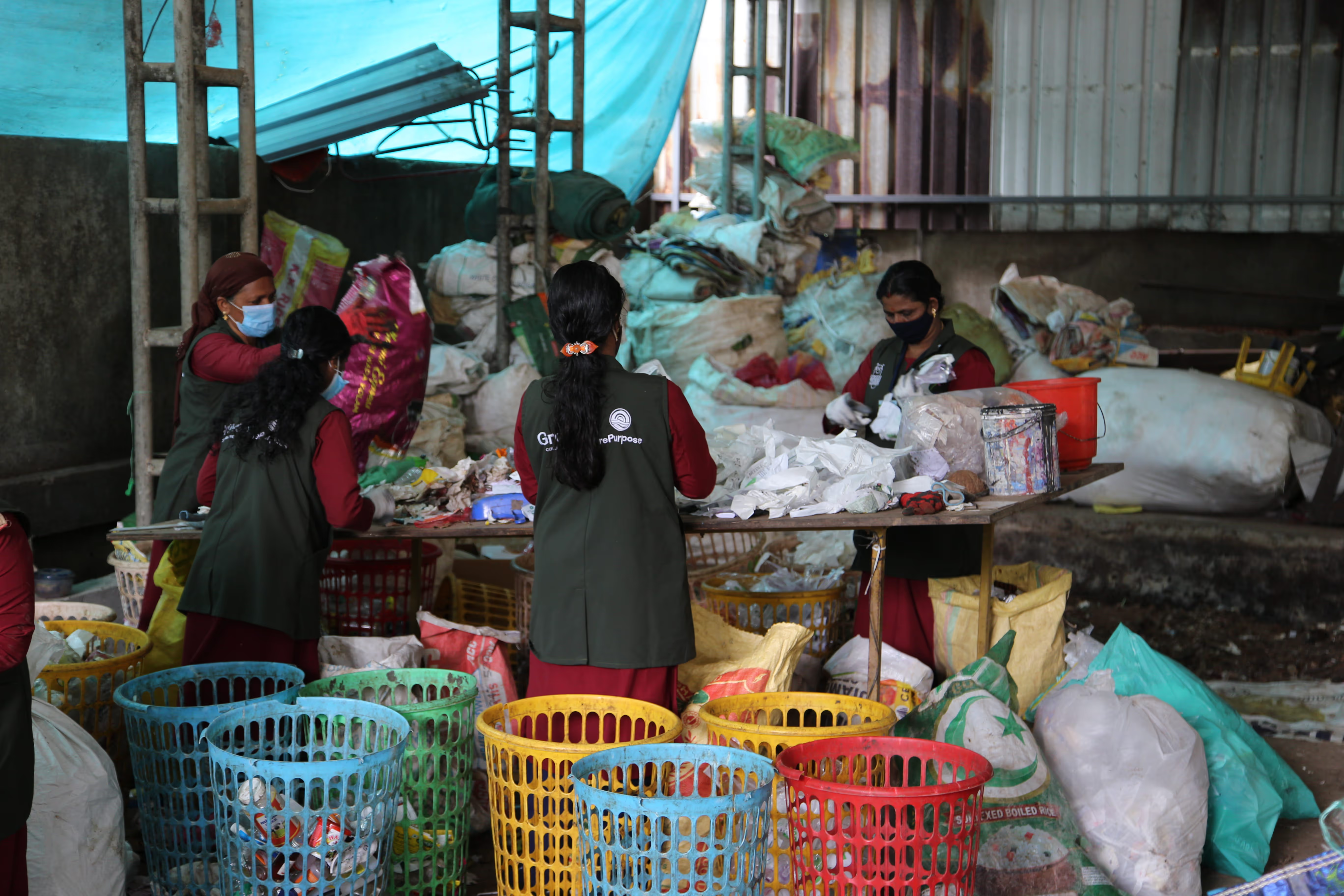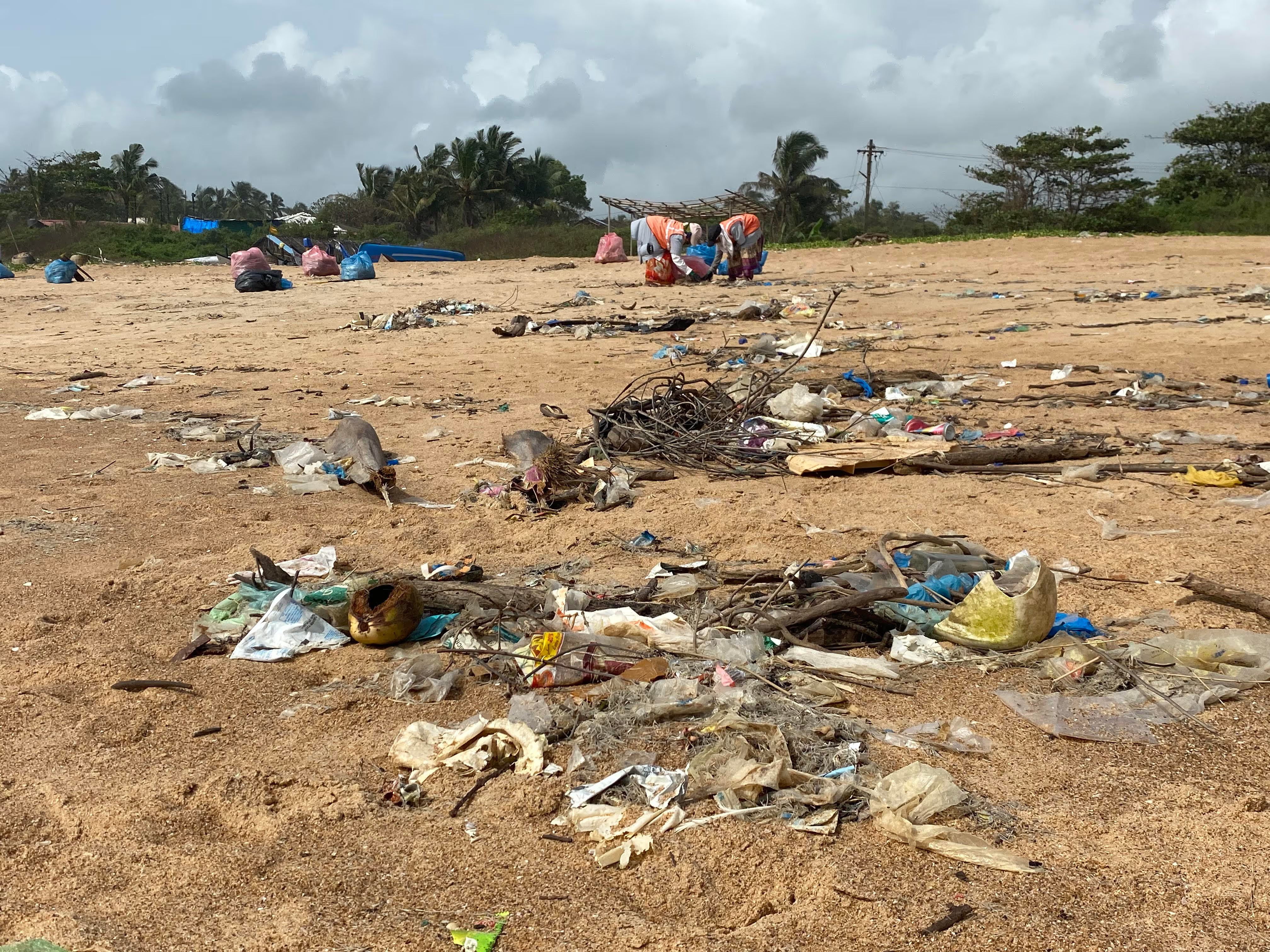So often, the resources we discard are quickly hidden from view. Not here.
This is where waste comes back into sight. Against one wall of the facility is a 40-foot tall tower of household waste. Across the facility, single-use, low-value plastic falls off a conveyor belt onto a growing pile below. It is reminiscent of the sands of an hourglass — and time is nearly up.

And it does feel like a race against time as I stand here at the Green Worms facility in Thamarassery, Kerala. As the employees efficiently work their way through the mountain of discarded waste, another collection truck, freshly stacked with trash, arrives. Bag after bag — almost all plastic — is unloaded, stacked, and sorted.
Seeing the amount of plastic recovered at this facility is one thing, but with a bit of contextual information, the scale of the problem starts to feel more real; more concerning. This Material Recovery Facility serves just 15 villages in rural Kerala (in which, around 60%-70% of the residents participate). By some counts the average plastic use of an Indian citizen is less than one-tenth of the plastic waste of a citizen in the USA or UK. So what I am seeing is barely a grain of sand in the hourglass. Over 350 million tonnes of plastic are discarded globally each year, of which only 9% are recycled.
While the scale of a problem can feel intimidating, the solutions are straightforward. We need to reduce the amount of plastic we produce and discard. Any plastic discarded needs to be effectively sorted in order to recycle it and recover the value.
However, the reality is that effective sorting, recycling and recovery is not yet happening at anything like the scale required to prevent plastic from entering the natural environment. The UK, for example, exports the majority of its recovered plastic as it does not have the capacity to recycle it all within its borders. Along with continued efforts to reduce virgin plastic use, we need to dedicate far more resources to plastic recovery infrastructure in order to tackle plastic pollution from both sides.

So, if it’s a global problem, why am I here in Kerala? In this area, close to Malappuram, Green Worms are supporting local women to collect, sort and recover plastic in a remarkable collaboration. The work is supported by the local panchayat (local government), and by rePurpose Global and partner brands including Grove Collaborative.
One of the reasons this particular collaboration is so effective is because it is not a top-down solution, but a grassroots movement. A movement started and driven by people who deeply understand the local context.
At rePurpose Global we have robust processes in place to make sure that our impact projects are run with partner organisations that meet various environmental, ethical and traceability criteria. Green Worms do this, and more. Jabir Karat, founder of Green Worms, told me how the project workers clear trash hotspots ahead of monsoon to reduce the impacts of floodwaters, and how they’re going over-and-above their collection duties by working with local shopkeepers to find solutions for commercial waste.
We may not be able to immediately turn the hourglass of plastic waste and start again. But here in Kerala, there are rays of hope that we can slow some of the flow.
To learn more about the impact we’re creating in Kerala, here’s a video walk-through of our impact project.


.avif)








